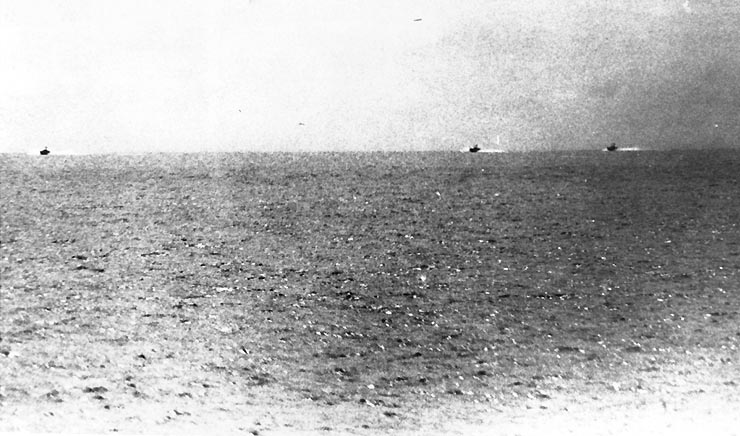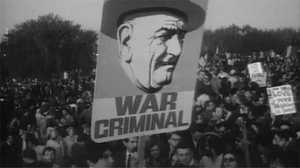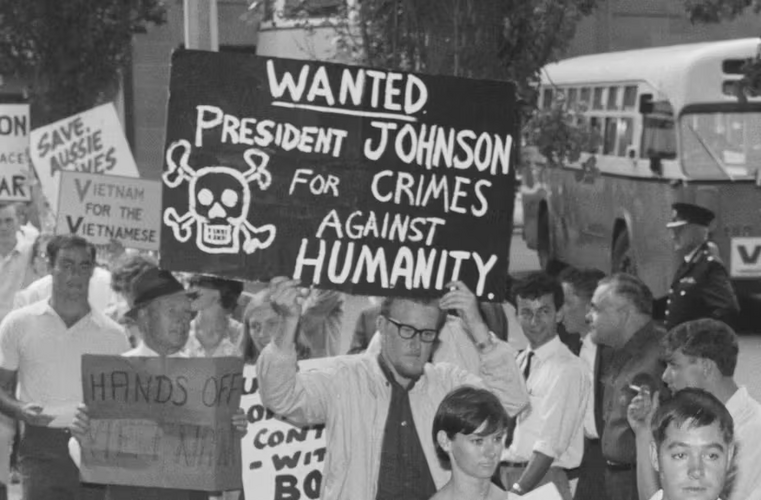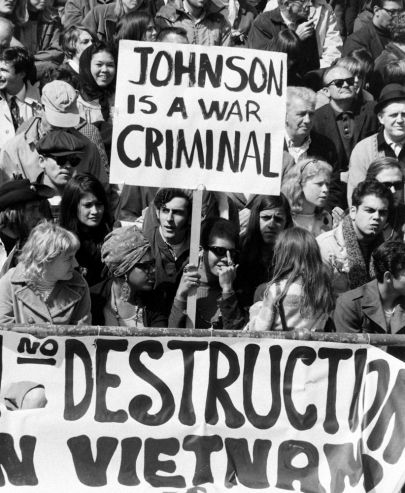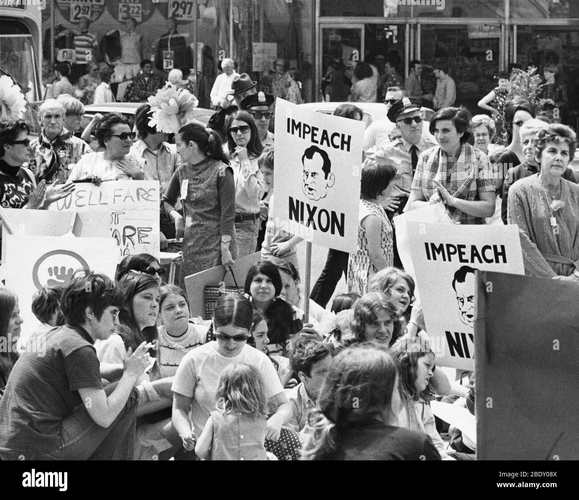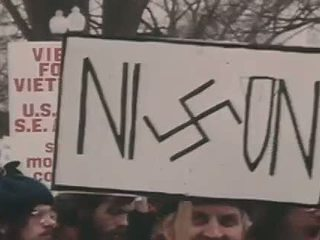Where Kennedy stood on Vietnam in September 1963 was:
1. Maintaining support of the Government of South Vietnam (under Diem or any other S. Vietnamese leader) to prevent the expansion of communism in SEA. He stated that the fall of Saigon would result in the fall of Thailand and later threaten India and others in the region. Therefore, it can be said that he subscribed to the Domino Theory in September 1963.
2. Believed that the war in Vietnam was a fight that needed to be fought by Vietnamese and supported by the US. US support, as in Europe, which he stated had been stabilized against communist aggression with the help of the US was what he intended to do in SEA. This was accomplished in a variety of ways, which included basing US forces in Europe. Therefore, one might assume that Kennedy was not opposed to placing US bases in Vietnam and manning them with regular forces.
3. He had escalated the number of US advisors in Vietnam to 11,000 men by September 1963 (47 Americans had died by this time in fighting along side their S. Vietnamese counterparts). Kennedy was prepared to send additional help to the S. Vietnamese, which he stated. These would have certainly been more advisors and Special Forces personnel, but certainly could have included US aircraft and naval assets.
4. CIA operations, sanctioned by Kennedy, against the North were an ongoing effort to destabilize the communist in 1963. These types of operations led to the Gulf of Tonkin incident. Kennedy believed in the force multiplier of technology and directed, small-clandestine, operations. These operations would have likely continued (whether it was CIA or US Army led).
5. Kennedy was happy that Sen. Henry Cabot Lodge (R) went to Vietnam as US Ambassador. Kennedy stated in September 1963 that it was better that Lodge went and not himself, because it was 'dangerous' for ones career to be steeped in the Vietnam issue with an upcoming election. Kennedy, with US civil rights issues, relatively high unemployment (5.6%), and proposed tax cuts to jumpstart the economy, were issues that needed to address in the 1964 election campaign. Adding the fight to suppress communism in Vietnam to the agenda would have complicated the domestic issue, especially considering the effort to fund its escalation.
6. Kennedy's military advisors were informing him that the military assistance the US was providing was making a difference in the fight against communism in SV, however the leadership of SV was making grave errors that undermined their efforts. Diem had imposed marshal law and launch raids against Buddhist pagodas that placed the SV government and military in a very bad light. Although, Diem was unpopular with the South Vietnamese, he was a stanch anti-communist and supported by the US for that reason. Diem's death and the chaos in the SV government that followed led to the distrust of the SV people in their government. There was little belief that an independent Vietnam was not going to come from an increase in US forces. Kennedy needed the SV leader to change his tactics or US military support would be withdrawn (see doc below).
Personally, I think Kennedy would have tried to keep US forces to a minimum in Vietnam and would have waited until after the 64' election to address wider scale US military support. The Gulf of Tonkin incident occurred in August 1964 and the election was in November 64'. This incident would have been a hot topic for those who may have thought Kennedy was 'soft' on communism. His detractors would have pressed for some form of retaliation (which, ultimately led Johnson to approve Operation Rolling Thunder in Feb 65 and Marine landings in March). Kennedy would have likely launched some form of reprisal after the election in 1965 as Johnson.
However, Kennedy seemed to favor letting local forces hash-out their issues and do battle amongst themselves with the aid of American support. As the old saying goes, 'Don't tell me what you'll do, show me what you've done' often asked and used as an indicator of what someone will do in the future. Kennedy was against sending troops in to aid in the Bay of Pigs invasion (trying to keep the US profile very low), he opposed first-strike and a military invasion of Cuba during the Cuban Missile Crisis (with concerns of escalating the situation), and in 1960 Kennedy sent advisors and SF troops to Laos to fight communist, but not regular forces (to allow local forces to resolve the issue with US support). I think Kennedy would have allowed the aerial and naval campaigns to expand in Vietnam after 1963, as this would have shown support to SV, but would have kept US forces in a position of relative safety with the ability to retract forces immediately if necessary. However, I do think he would have been dragged in to the deployment of US ground forces as the NV continued to increase their attacks against S Vietnam. It would then become a question of the scale of US forces and not whether he would or would not have sent them.

